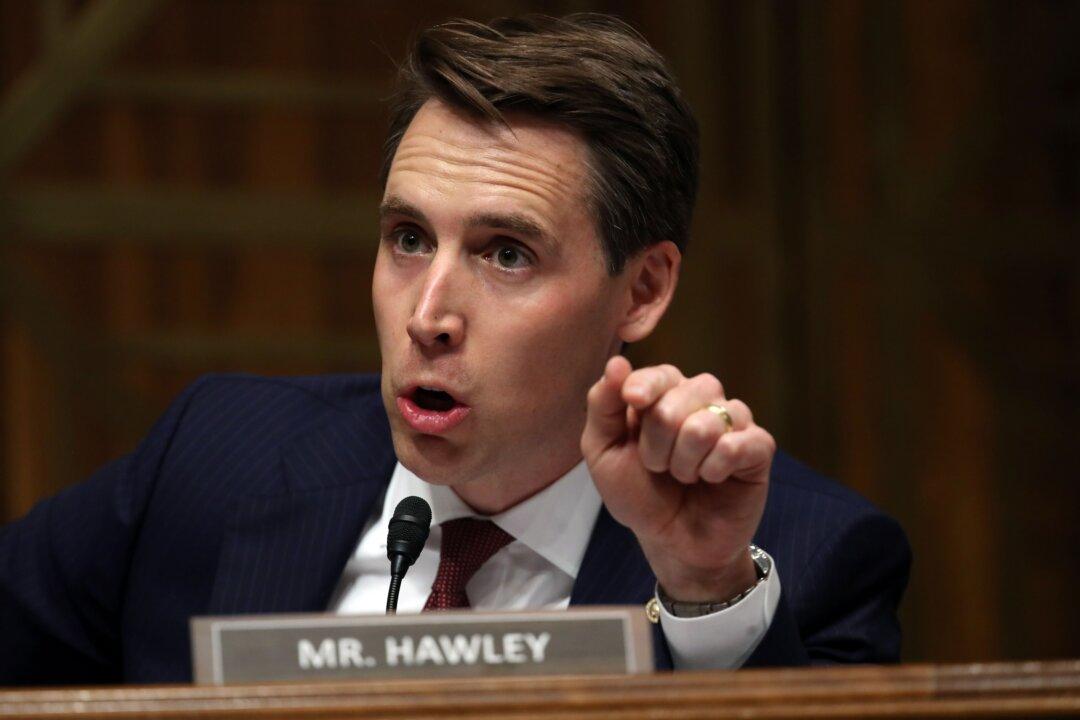Sen. Josh Hawley (R-Mo.) on Thursday introduced a new legislation to send direct payments to all Americans.
Hawley’s plan calls for the same supplementary federal benefit 80 million Americans received earlier this year under the $2.2 trillion CARES Act. Each individual will receive a one-time cash payment of $1,200, married couples will get up to $2,400, plus $500 per child under age 17.





